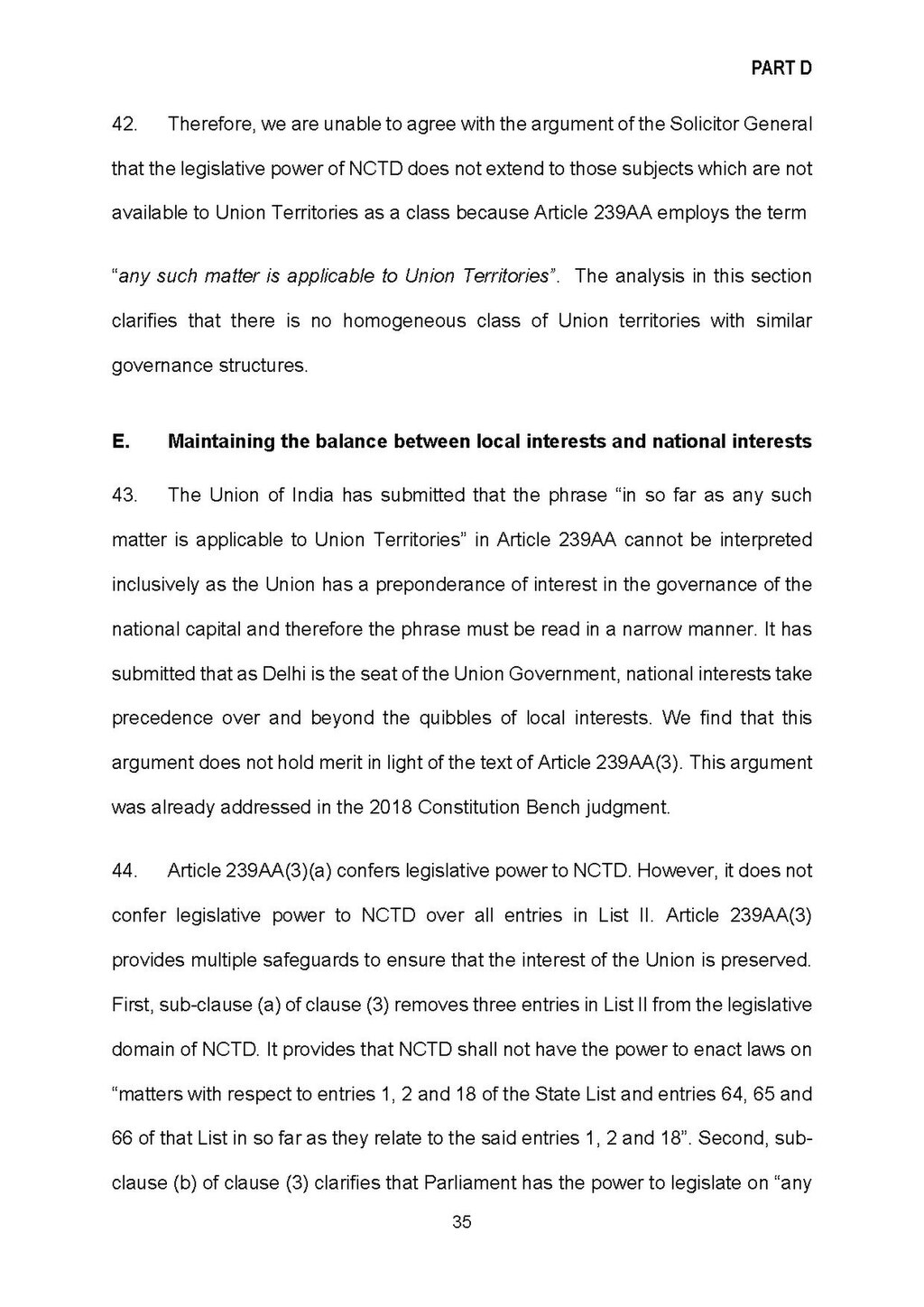42. Therefore, we are unable to agree with the argument of the Solicitor General that the legislative power of NCTD does not extend to those subjects which are not available to Union Territories as a class because Article 239AA employs the term
“any such matter is applicable to Union Territories”. The analysis in this section clarifies that there is no homogeneous class of Union territories with similar governance structures.
E. Maintaining the balance between local interests and national interests
43. The Union of India has submitted that the phrase “in so far as any such matter is applicable to Union Territories” in Article 239AA cannot be interpreted inclusively as the Union has a preponderance of interest in the governance of the national capital and therefore the phrase must be read in a narrow manner. It has submitted that as Delhi is the seat of the Union Government, national interests take precedence over and beyond the quibbles of local interests. We find that this argument does not hold merit in light of the text of Article 239AA(3). This argument was already addressed in the 2018 Constitution Bench judgment.
44. Article 239AA(3)(a) confers legislative power to NCTD. However, it does not confer legislative power to NCTD over all entries in List II. Article 239AA(3) provides multiple safeguards to ensure that the interest of the Union is preserved. First, sub-clause (a) of clause (3) removes three entries in List II from the legislative domain of NCTD. It provides that NCTD shall not have the power to enact laws on “matters with respect to entries 1, 2 and 18 of the State List and entries 64, 65 and 66 of that List in so far as they relate to the said entries 1, 2 and 18”. Second, subclause (b) of clause (3) clarifies that Parliament has the power to legislate on “any
35
